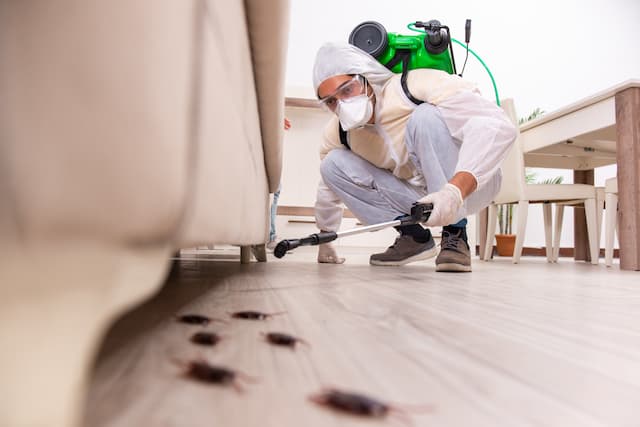It is well known that cockroaches can get into homes and settle down in the most surprising places. Even though it can be scary to find these bugs in your kitchen or bathroom, what’s even scarier is the damage they might do to your electronics. But cockroaches want more than just your food. They also like the warm, dark, and often wet places inside your electronics. In this piece, we’ll talk about why cockroaches are interested in electronics and what you can do to keep them out.
Why cockroaches like electronics so much
Cockroaches are naturally drawn to technology for a number of reasons, including
- Warmth: Electronics give off heat, which bugs find appealing, especially when it’s cold outside.
- Dark Places: The insides of electronics are great places for bugs to hide because they are dark and out of the way.
- Humidity: A lot of gadgets can make some humidity. Cockroaches like it when it’s wet, and this humidity can draw them in.
- Food Residue: Electronics can pick up tiny bits of food from the air, which roaches can snack on.
There are several problems that cockroaches can cause when they get into your electronics:
- Short Circuits: Roaches can damage wires and other parts inside electronics, which can cause short circuits or the whole device to stop working.
- Electrical Fires: Cockroaches can seriously damage your home if they chew through electrical lines and start an electrical fire.
- Hitchhikers: Roaches can get into other parts of your home through devices, spreading the infestation.
How to Keep Your Electronics Safe
Keeping cockroaches out of your gadgets is important for their longevity and your safety. To keep your gadgets safe, here are some tips:
- Keep Your Home Clean: The best way to protect yourself is to keep your home clean. Every so often, clean up crumbs, food spills, and dirty dishes. Cockroaches are less likely to come into a clean area.
- Seal Entry Points: To keep bugs out, make sure your home is well sealed. Along the edges of windows, doors, and utility spaces, look for cracks, gaps, and holes. Close off these entry places to make it less likely that an infestation will happen.
- Use electronics on a regular basis: If you have electronics that don’t get used for long periods of time, like a TV in a guest room, turn them on every so often to keep roaches from moving in.
- Keep electronics off the ground: If you can, store electronics above ground level. Roaches are more likely to get into things that are on or near the floor.
- Use pesticides: In places with electronics, you might want to use roach killers. A natural way to keep pests away is with essential oils, or you can use roach traps instead.
- Keep an eye out for cockroach activity: Check your gadgets often for signs of cockroach activity. Droppings, exoskeletons that have been shed, and a musty smell are all common signs.
- Professional Pest Control: It’s important to call a professional pest control service if you think or know that you have a roach problem. They can get rid of the pests in a safe and effective way that stops future outbreaks from happening.
That being said
Having cockroaches around devices is not a good idea. Because they like warm, dark, and damp places, electronic gadgets are good places for them to hide. Keep your home clean, seal any openings, use your tools often, and keep them up high to protect them. Using things that keep pests away and keeping an eye out for roach signs can also help. If you find an issue, it’s best to hire a professional pest control service to make sure the problem is fixed safely and effectively. By taking these precautions, you can keep these annoying guests away from your valuable electronics and keep your home free of pests.
Cockroach Control Newmarket deals with cockroach infestations with a systematic and exhaustive approach. Our trained technicians not only exterminate the cockroaches that are easily visible but also locate their nesting locations and thoroughly treat them, thus eliminating the threat of a future infestation.
